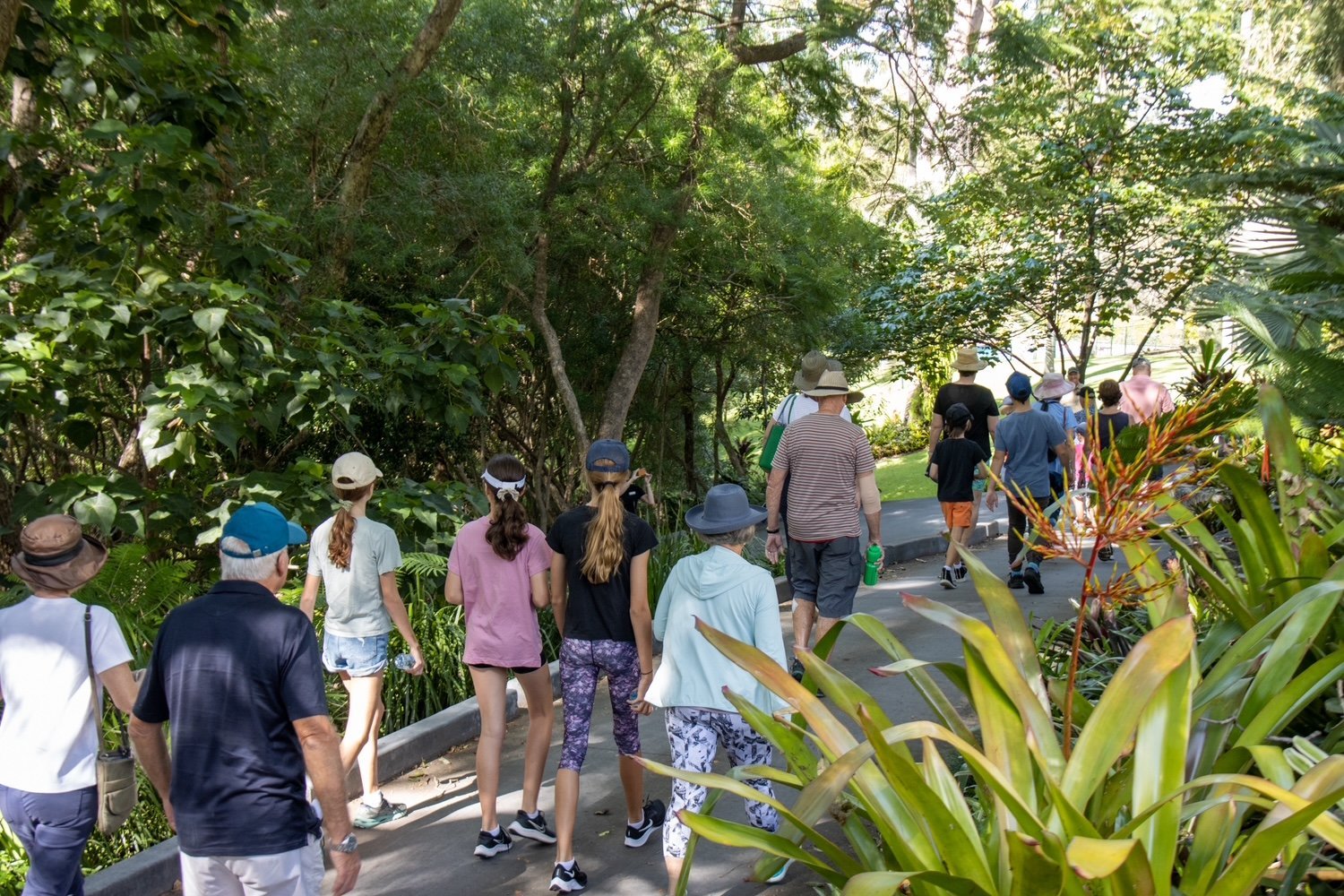Journal publications co-authored with Health and Wellbeing Queensland

What have equity and human rights got to do with dietetics?
In this invited guest editorial, Dr Robyn Littlewood emphasised the importance of embedding an equity lens into dietetics practice and to advocate for systems that scale services proportionally according to need, ensuring no one is left behind. This approach goes further than traditional tailored care, offering comprehensive and systemic support for each person. While we may not directly control the broader systems and conditions surrounding our patients, we can recognise and work to address systemic barriers that are restricting preventative and quality health care.
Understanding the determinants associated with sustainability of school-based nutrition program, such as Pick of the Crop, is crucial to maximise output from funding, whilst allowing sufficient time for program benefits to be achieved. This study suggests that relationships across government departments, local organisations and communities, need to be nurtured and prioritised from the outset to sustain program implementation beyond its initial funding.
This study aimed to evaluate the implementation and impact of the ‘Pick of the Crop’ (POTC) program. POTC is a whole-school nutrition program aimed at increasing opportunities for primary school students in Queensland to learn about and eat more vegetables and fruit (VF). This study demonstrates POTC as an acceptable and feasible model with potential for increasing VF consumption among primary school students.

This paper described the development of validated “fit-for-purpose” rapid assessment tools (MBQ-B and MBQ-C) to measure 24-hour movement behaviours in children aged 0–5 years. The validation study shows that both the open- and closed-ended versions of the MBQ are valid and reliable rapid assessment tools suitable for research conducted for policy and practice purposes, including the evaluation of scaled-up early obesity prevention programs.
This qualitative evaluation aimed to understand how the Healthy Conversations @ Playgroup program was experienced by parents, playgroup coordinators and peer facilitators. The program was valued by parents, providing validation and normalisation of parenting practices and fostering a shared experience of parenting, with Playgroups a convenient setting for families to attend.

This rapid review summarised the impact of family-based digital interventions for obesity prevention and treatment in children, with a specific focus on diet, physical activity, sedentary behaviour, sleep, and weight-related outcomes in primary school-aged children. The findings were used to inform the development of Podsquad.
What is the role of primary prevention of obesity in an age of effective pharmaceuticals?
This narrative review examined the evidence and continuing role of strategies for the primary prevention and treatment of obesity, in the context of effective obesity pharmacotherapies. Pharmacotherapies are powerful treatment agents for clinical obesity but must consider nutritional and metabolic risks of use and discontinuation.
This study aimed to determine the unmet clinical resource needs of multidisciplinary primary healthcare practitioners (PHPs) to overcome evidence‐based barriers to preventing and managing childhood obesity, followed by co‐designing precision solutions. A prototype that targets the pervasive barrier of initiating a conversation about weight and healthy growth was developed – the BRAVE (Build relationships, Raise respectfully, Ask about attitudes, Validate values, Engage & enable) framework.

This opinion piece described a break–fix model versus a person-centred predict–prevent model in the context of preventative health. Canfell et. al. proposed three horizons for digital health transformation of population health towards precision prevention of chronic disease, demonstrating childhood obesity as a use case.
This protocol paper describes the establishment of Logan Healthy Living – an 8-week, group-based lifestyle management program that includes 1 hour of education and 1 hour of supervised, individually tailored exercise each week, and outlines the evaluation protocol for the service’s type 2 diabetes lifestyle management program.
What is the role of primary prevention of obesity in an age of effective pharmaceuticals?
This narrative review examined the evidence and continuing role of strategies for the primary prevention and treatment of obesity, in the context of effective obesity pharmacotherapies. Pharmacotherapies are powerful treatment agents for clinical obesity but must consider nutritional and metabolic risks of use and discontinuation.
This research explored community perceptions of an adolescent social and emotional wellbeing program. Yarning circles allowed adolescents, parent/guardians, community leaders, Elders and health service staff to share their perceptions of the program. The program was highly valued among participants, providing an example of how adolescent social and emotional wellbeing can be done well in the community-controlled setting.

This protocol paper describes the establishment of Logan Healthy Living – an 8-week, group-based lifestyle management program that includes 1 hour of education and 1 hour of supervised, individually tailored exercise each week, and outlines the evaluation protocol for the service’s type 2 diabetes lifestyle management program.
In this paper, the authorship team led by Dr Robyn Littlewood aimed to describe the development and integration of a Children’s Health Service and System Research (HSSR) Strategy in Children’s Health Queensland. This was the first known paediatric HSSR strategy developed and integrated within a large dedicated paediatric health system. Findings will guide global paediatric healthcare systems to prioritise HSSR in their local setting to optimise health service delivery and patient outcomes.
Last updated 19 November 2025


